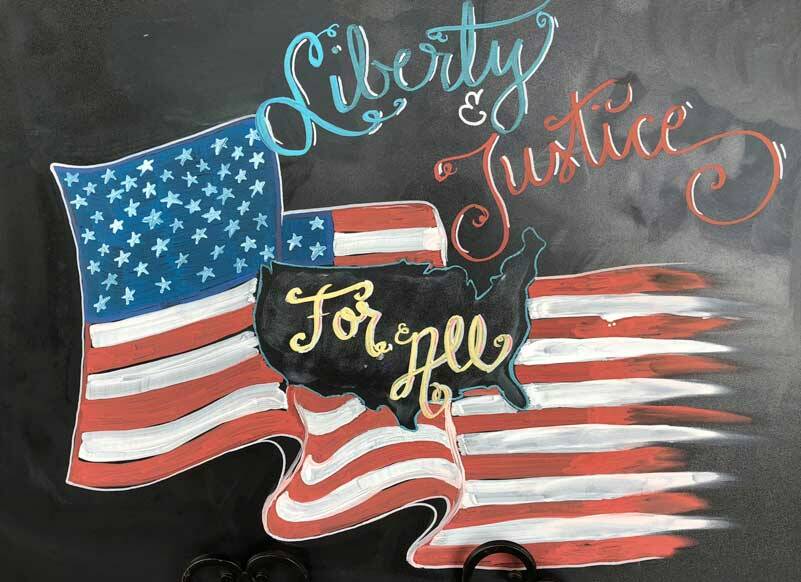By Morf Morford, Tacoma Daily Index
The Paycheck Protection Program (PPP) helped millions of Americans who own businesses or oversee family enterprises.
In theory at least, that funding was to keep businesses afloat during a difficult time. Some of that money was taken in outright fraud and deception.
But some of that has gone to businesses or individuals that might raise more than a few ethical questions.
Forgiven loan or government give-away?
Many of us do not hold many of our politicians in the highest levels of trust – especially when they seem to find nearly unlimited ways of gaining funds that most of us never know about or, by some mysterious and quasi-legal circumlocutions, are able to withhold assets from public view.
PPP funds went, by the millions, to some sources that seem questionable, at best.
Among them are some enterprises with recognized local political connections: Newhouse Farms, owned by Republican U.S. Rep. Dan Newhouse; Dean’s Car Care, owned by Democratic Congressional candidate Marie Gluesenkamp Perez; and the three ice cream shops (and one pizza parlor) owned by state senator for the 5th Legislative District, Mark Mullet. Wilcox Farms, partially owned by state House Minority Leader JT Wilcox, got just over $1 million in forgiven loans.
In theory at least, there does not appear to be anything illegal or even unethical about any of these payments.
In fact, all of the payments to officials and candidates appear, on paper at least, to qualify for the intended purposes of the relief programs.
These payments rarely show up in individual financial disclosures required from officials and candidates because many fall outside of required income categories. Washington’s Public Disclosure Commission specifically exempts forgiven PPP loans from public reporting.
Elected officials and public administrators ranging from local school board members to the U.S. President must file annual financial disclosure reports by law. Members of the U.S. Senate and House file through their federal offices. State and local officials in Washington submit their reports to the Public Disclosure Commission.
Avoiding the appearance of evil
In a simpler, more naive time, avoiding the appearance of evil was a basic premise of life – especially for those whose words and actions were by necessity under constant public scrutiny.
It’s difficult to even imagine now, but there was a time when false, derogatory and inflammatory language was considered, at minimum, bad form and could easily be the end of one’s public career. The same with accepting questionable sources of funding.
But now, as we all know, any financial support and any statement, however blatantly false or outrageous, is often seen as a positive (and effective) feature of a campaign or public persona.
It should not be too much to ask of our public officials that they (or their staff) be thorough and forthcoming about their income and where it comes from.
Those rules and expectations apply to most of us.
After all, if they can’t be honest about where their support is coming from, what else are they keeping from us?
These public figures might be following the letter of the law, but they are certainly skirting, or passively avoiding the spirit of the law.
I’d hate to think that we had ever become accustomed to arbitrary pardons, privileges and legal immunity for some and extreme penalties for others – all based on their ability – or inability to pay.
Dark money – cash from The Dark Side
The old saying about money is that “money talks”.
When it is not clear where money comes from, it is probably not clear what it “says”.
Political contributions, especially large ones, are given with expectations, implied or expressed.
Money that just “appears” without any clear attribution is called “dark money” – for good reason. It comes from the “shadows” – where intent, sources and accountability are vague if not obscured entirely.
Massive amounts of money surge into politics thanks to think-tanks,“citizens” groups and all manner of foundations that give the appearance of public support.
But where does it all come from?
Political donations are considered “free speech” – but whose speech is it?
How reflective are these donations of the will of “the people”?
And how obligated are the receivers of such mysterious funding to the actual or implied agenda of the so-called benefactors?
A few years ago, after returning from about a year outside of the USA, I happened to sit next to a practicing local judge at a sports event. In conversation I mentioned that I had just returned from about a year in China. He turned to me and said, “You know the biggest difference between America and China?”
I felt like saying something like “I wouldn’t even know where to begin” but he continued, “Rule of law. That is the biggest difference between the USA and China. Here, everyone is equal in the eyes of the law.”
I have not seen him lately, but I often wonder how firmly he still holds to that belief.
I certainly wish it was true. And I would certainly like to see it more actively and universally believed and acted out.
“Justice is blind” was a premise that I grew up with.
The law applies equally to all and no one is immune and no one should expect special favors or legal exemption.
The American Dream is about far more than home ownership.
No one is above the law and each one of us has basic legal rights and protections.
That’s a culture and a society any of us would be proud to live in and support.






